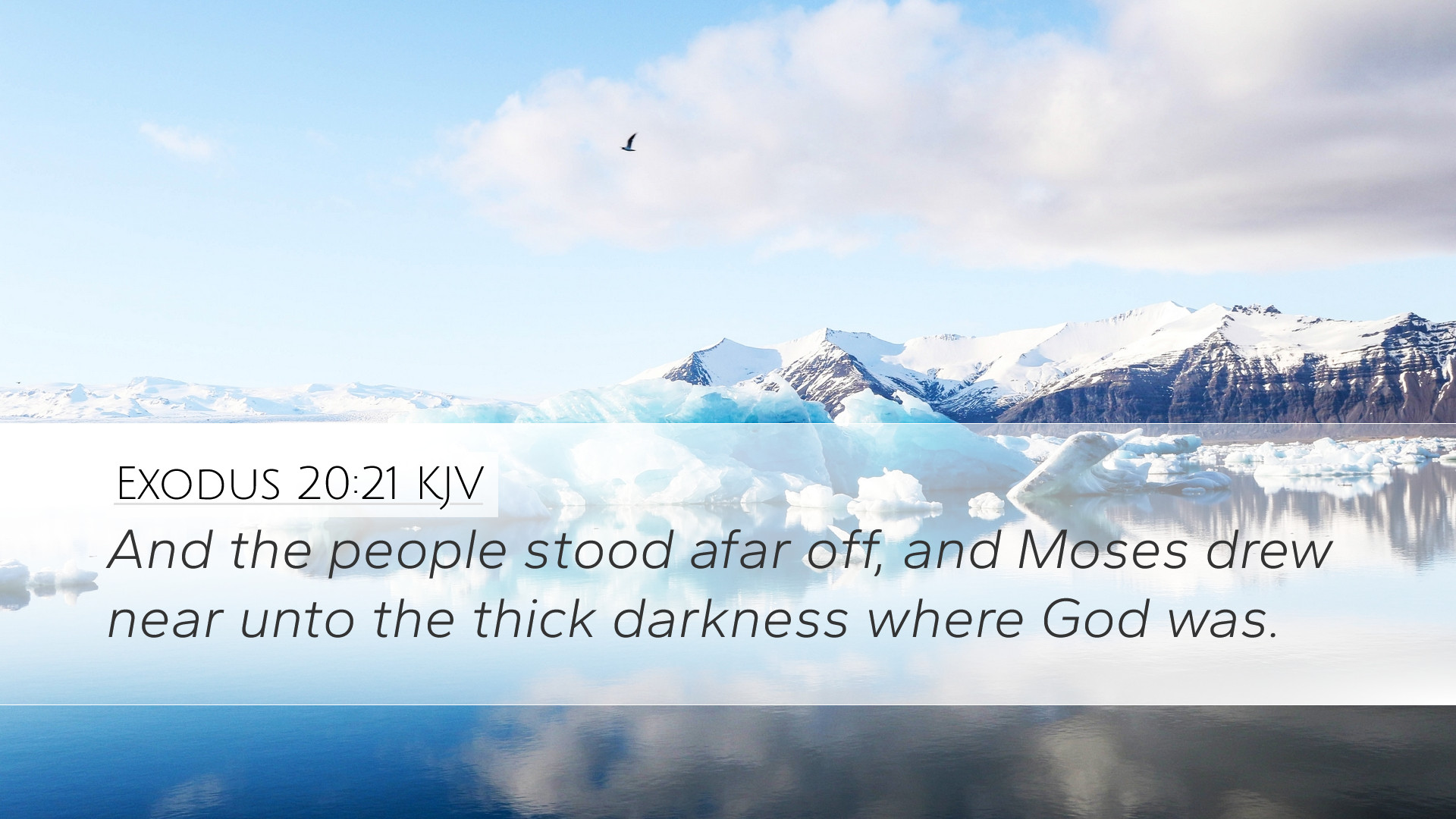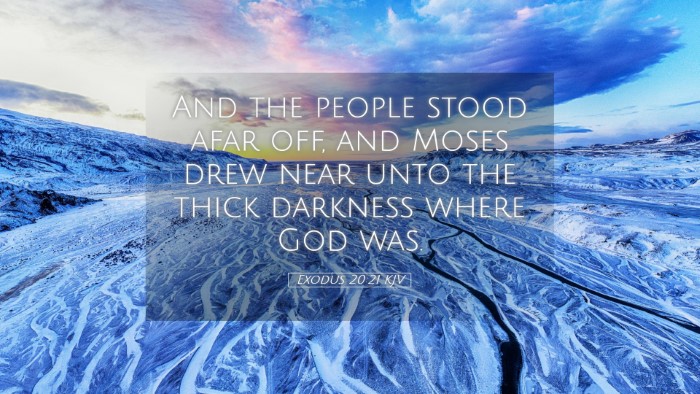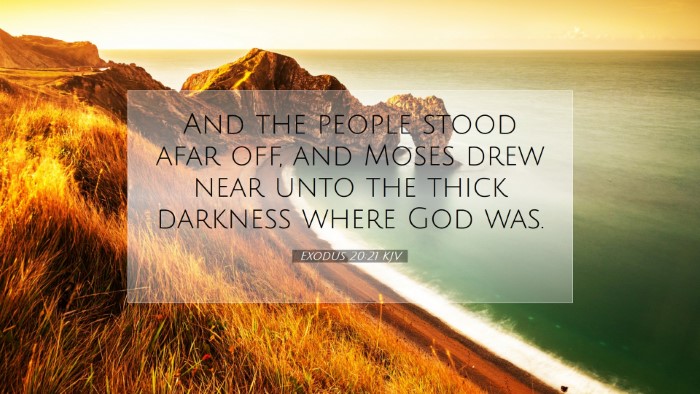Commentary on Exodus 20:21
Exodus 20:21 (ESV): "And the people stood far off, while Moses drew near to the thick darkness where God was."
Introduction
This verse follows the profound moment of the giving of the Ten Commandments at Mount Sinai. It depicts the response of the people to the divine revelation, illustrating their fear and the separation they felt from God. In this commentary, we will explore the insights from public domain commentaries including those of Matthew Henry, Albert Barnes, and Adam Clarke, focusing on the theological implications and practical applications of this verse for modern readers, especially pastors, students, theologians, and Bible scholars.
Contextual Considerations
The broader context of Exodus 20 includes the commandments that God delivered to the Israelites, which were foundational for their covenant relationship with Him. This particular verse shows a contrast between the holy presence of God and the trembling fear of the people.
Fear of God’s Presence
Matthew Henry observes that the people’s fear in this passage reflects their recognition of God’s holiness and their own sinfulness. The 'thick darkness' symbolizes the mystery and majesty of God, an enigmatic presence that was both powerful and fearful. Henry asserts that such fear is a natural response to the divine, serving as a reminder of human frailty in the face of God’s glory.
Separation from God
Albert Barnes emphasizes that the people's distance from God illustrates a critical spiritual principle: that sin creates separation between humanity and God. The fear that leads them to stand afar not only signifies their respect and reverence for God but also their understanding of their unworthiness to approach Him directly. Barnes notes that this sets a precedent for the necessity of mediation, which later finds its fulfillment in Christ.
Moses as Mediator
Adam Clarke highlights the role of Moses as the mediator between God and the people. Clarke points out that while the people remain distant, Moses's approach into the cloud of darkness symbolizes the intercession necessary for sinful humanity to engage with the holy God. This dynamic prefigures the ultimate mediation provided by Jesus Christ, who bridges the gap created by sin. Clarke’s commentary encourages readers to recognize their need for spiritual mediators in their own lives.
Theological Implications
God’s Holiness
The representation of God in 'thick darkness' reveals profound truths about divine holiness. God is not only transcendent but also immanent, residing with His people while being wholly other. This paradox compels believers to approach Him with awe and reverence.
Human Response to Divine Fear
The emotional and spiritual response of standing at a distance suggests a healthy fear of the Lord, which is foundational to wisdom (Proverbs 1:7). The recognition of God's awe-inspiring presence calls believers today to approach Him reverently, acknowledging His majesty and sovereignty in their worship and prayer lives.
Role of Leadership
Pastors and spiritual leaders can glean from the example of Moses in this context. His willingness to approach God on behalf of the people underscores the importance of intercessory prayer and spiritual leadership within the church. Leaders must reflect on their role as mediators who guide their congregations toward a deeper understanding of God's holiness and the necessity of repentance.
Practical Applications
Encouraging Holy Fear
Pastoral Application: Pastors should teach about the significance of the fear of the Lord in contemporary worship, encouraging congregants to embrace a respectful distance that engenders awe without losing the joy of having a personal relationship with God.
Promoting Intercessory Prayer
Student Application: Students of the Bible are invited to reflect on their own lives and consider how they can practice intercessory prayer, learning from Moses's example. Such practice not only benefits the individuals they pray for but also strengthens their spiritual walk and relationship with God.
Recognizing God’s Presence
Theological Reflection: The thick darkness symbolizes God's incomprehensible nature. Scholars and theologians should explore the depths of God's nature in their study. This entails an acknowledgment that while God is approachable, He remains a consuming fire (Hebrews 12:29), and thus both approachable and transcendent.
Conclusion
Exodus 20:21 provides a vivid picture of humanity’s relationship with God, emphasizing fear, reverence, and the vital role of the mediator. As we reflect on these themes, we are challenged to recognize our own positions before God: approaching Him with reverent fear, understanding the significance of intercession, and comprehending His profound holiness. The commentary provided by Henry, Barnes, and Clarke enriches our understanding and application of this verse, encouraging us to explore the depths of God's nature and our response to Him in faith.


